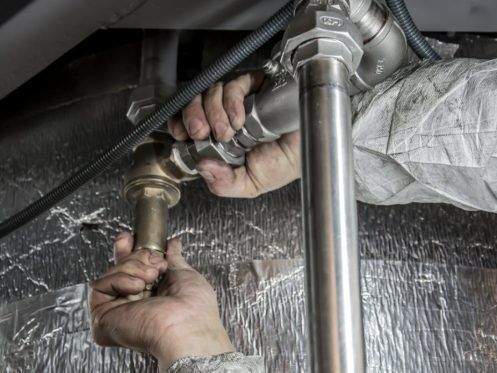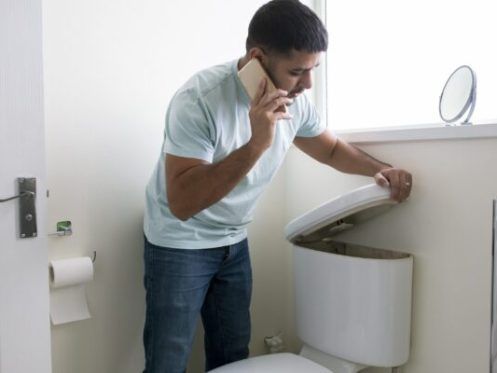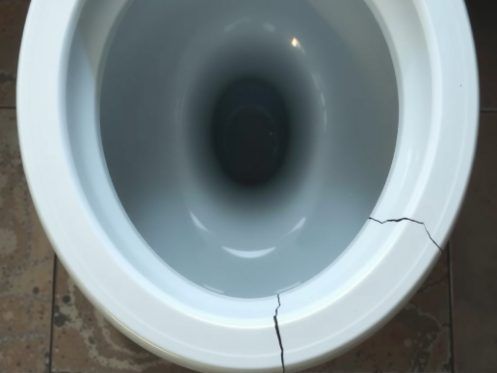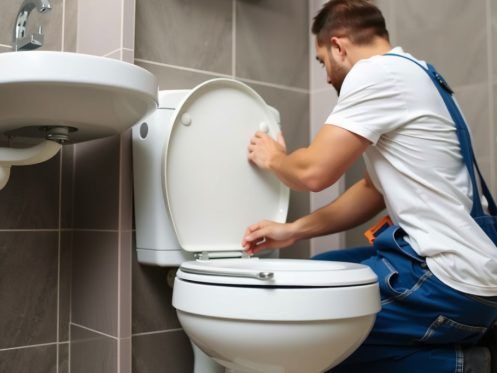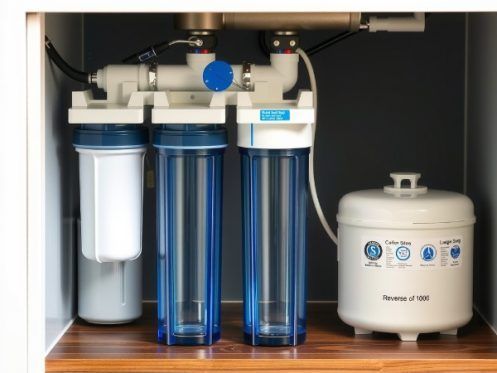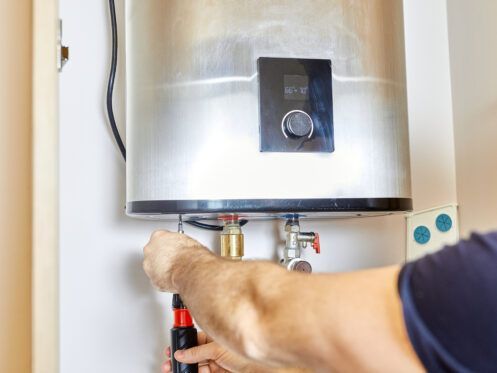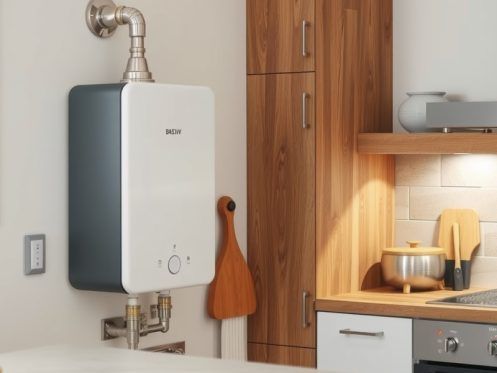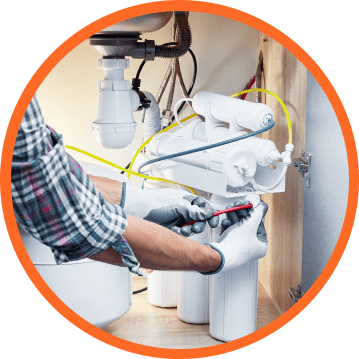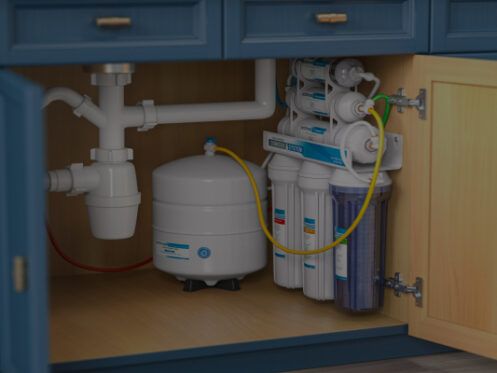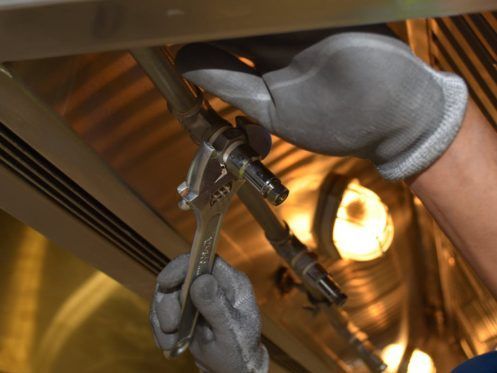
Let’s talk pipes.
Not the prettiest part of your home, but when they’re doing their job right, you don’t even think about them. Water flows. Drains drain. Showers are hot. Life’s good.
But when your plumbing system starts acting up, it can throw your whole routine off track. One cold shower too many or a mysterious leak under the sink, and suddenly, those old pipes are the only thing on your mind.
If you’re living in an older home in Bountiful, Sandy, or anywhere across the Wasatch Front, chances are your piping system might be showing its age. Here at Rare Breed Plumbing, we’ve helped countless homeowners repipe their homes—and trust us, the signs are there long before a pipe bursts and floods your kitchen.
So, how do you know when it’s time to repipe?
Let’s dig into the five major warning signs your Utah home needs repiping—and what you can do about it.
1. Low or Fluctuating Water Pressure
You turn on the shower and… it sputters. Or worse, one bathroom has great pressure while the others feel like you’re rinsing off under a leaky faucet.
Sound familiar?
Inconsistent or poor water pressure is one of the earliest indicators that your pipes might need to be replaced. Over time, older pipes—especially galvanized steel and cast iron pipes—accumulate mineral buildup from Utah’s notoriously hard water. This buildup restricts water flow, slows everything down, and can eventually cause full blockages.
In some cases, the pressure might surge and drop suddenly, especially when you’re using hot water. That could be a sign of corrosion or scaling on the inside of the pipe walls. If your water pressure fluctuates from room to room or drops when multiple fixtures are in use, it’s time to get your piping system checked.
2. Discolored or Rusty Water
Here’s a clear sign it’s time: your water isn’t clear.
When you turn on the tap and notice a rusty brown color—or worse, it smells metallic—that’s not just unpleasant, it’s a red flag.
Discolored water usually means there’s corrosion inside your metal pipes. As these pipes age, especially galvanized steel or cast iron, they start to break down from the inside out. That rust can flake off into your water supply, making it unsafe to drink and giving your laundry and dishes a lovely orange tint. Yikes.
Even if the discoloration comes and goes, it’s not something to ignore. The longer corroded pipes stay in service, the higher the chance they’ll spring a leak or completely collapse.
Also worth noting—lead pipes and old lead soldering (common in homes built before the 1980s) can leach harmful chemicals into your water. That’s not just a plumbing issue—it’s a health issue.
3. Frequent Leaks and Water Damage
A leak here. Another one there. A patch job that holds for a month and then… here we go again.
If you feel like you’re constantly calling a plumber for leaking pipes, it’s probably not bad luck—it’s your piping system waving a big red flag.
Leaks happen when aging pipes corrode, joints loosen, or pinhole leaks form from long-term mineral wear. Even copper pipes, which tend to last longer, can eventually suffer from pinhole leaks due to pitting corrosion—tiny holes caused by chemical reactions between the water and the pipe’s interior surface.
And let’s not sugarcoat it: water damage adds up fast. From warped floors to moldy drywall, one slow leak behind a wall can turn into a major (and expensive) renovation project.
At Rare Breed Plumbing, we’ve seen it all—leaks that looked minor on the surface but turned out to be symptoms of a much bigger issue. If you’re experiencing frequent leaks, repiping your home could actually save you money and headaches in the long run.
4. Noisy or Banging Pipes
If your pipes sound like a haunted house—banging, clanking, gurgling—there’s trouble brewing behind the walls.
Noisy pipes usually happen when air gets trapped in the lines or when loose connections allow the pipes to move and bang against walls or each other. In older homes with outdated or poorly installed plumbing, these issues are all too common.
But noise can also point to something more serious, like pressure imbalances or corroded pipes that can no longer handle the usual water flow. When pipes age and narrow from the inside due to buildup, it creates pressure spikes that make them “talk.”
In some cases, that noise could mean your water heater is overworked or sending hot water through pipes not designed to handle the heat. If you hear rattling every time you turn on the hot water, it’s worth investigating.
A well-functioning plumbing system should be quiet. If your pipes are loud, they’re trying to get your attention.
5. Your Home Has Outdated or Hazardous Piping Materials
This one’s a little more technical, but super important.
If your home was built before the 1980s (and plenty in Bountiful and Sandy were), it might still have outdated pipe materials that simply weren’t built to last—or are straight-up dangerous.
Here’s a quick rundown of what might be lurking in your walls:
- Galvanized steel pipes: These were commonly used until the 1960s but are prone to corrosion and internal rusting, which leads to low water pressure, discolored water, and leaks.
- Cast iron pipes: Super durable when new, but as they age, they become brittle and prone to cracks and clogs.
- Lead pipes or solder: Major health risk. Lead can leach into your water supply and cause serious health issues, including lead poisoning, especially dangerous for kids and pregnant women.
- Polybutylene pipes: Used in the ‘70s through early ‘90s, this plastic piping was affordable but ultimately failed due to its reaction with water treatment chemicals. It’s now considered unreliable and prone to sudden failure.
If your home still uses any of these materials, it’s not a matter of if they’ll need to be replaced—it’s a matter of when.
Why Repiping Isn’t as Scary as It Sounds
Let’s be real, repiping your home sounds like a big project.
And yeah, it’s not a small job. But it’s also not the horror story some folks imagine. Modern repiping services are way more streamlined than they used to be. At Rare Breed Plumbing, we work hard to minimize disruption to your daily life. In most cases, we can repipe a home in just a few days, keeping things clean, efficient, and well-organized from start to finish.
You’ll have better water pressure, cleaner water, quieter plumbing, and way fewer worries.
Plus, you’ll be adding value to your home. If you’re planning to sell in the next few years, being able to tell buyers that you have a brand-new plumbing system is a huge selling point.
When to Call a Professional Plumber
If you’ve noticed one or more of the warning signs we’ve talked about—discolored water, frequent leaks, noisy pipes, or low water pressure—it’s time to get a professional opinion.
And no, that doesn’t mean a quote with pushy sales tactics or a one-size-fits-all approach. At Rare Breed Plumbing, we believe in transparency and education. We’ll walk you through the condition of your home’s plumbing, show you where the problem spots are, and recommend solutions that actually make sense for your budget and long-term needs.
We’ve helped countless Utah homeowners tackle unique plumbing challenges, especially in neighborhoods with older homes and aging pipes. Whether you’re dealing with corroded galvanized steel or potentially dangerous lead pipes, we’ve got the experience and tools to handle the job.
Bonus Tip: Pay Attention to Water Temperature
Ever get scalded in the shower because someone flushed a toilet?
That’s not just annoying—it could be a sign your plumbing system is struggling to regulate hot and cold water flow. Fluctuating water temperature, especially in homes with older plumbing systems, often points to outdated or poorly insulated pipes. It might also mean your water heater isn’t playing nicely with the rest of your plumbing.
Either way, it’s another clue that repiping might be in your future.
Need Repiping for Your Utah Home? Call Rare Breed Plumbing Today!
Plumbing problems are one of those things we all try to put off. Out of sight, out of mind, right?
But when the signs start to pile up—rusty water, frequent leaks, low pressure, weird noises—it’s best not to wait. Aging pipes don’t get better on their own. They need to be replaced before they cause bigger, more expensive problems.
Whether you’re dealing with hard water corrosion, outdated materials like galvanized steel or polybutylene, or you just want the peace of mind that comes with a well-functioning plumbing system, repiping your home might be the smartest move you make this year.
If you’re not sure where to start, give us a call at Rare Breed Plumbing. Our plumbers will assess your home’s plumbing, explain your options in plain English, and help you make the right call for your family’s health, comfort, and future.
Let’s get your home back on solid (and leak-free) ground.


